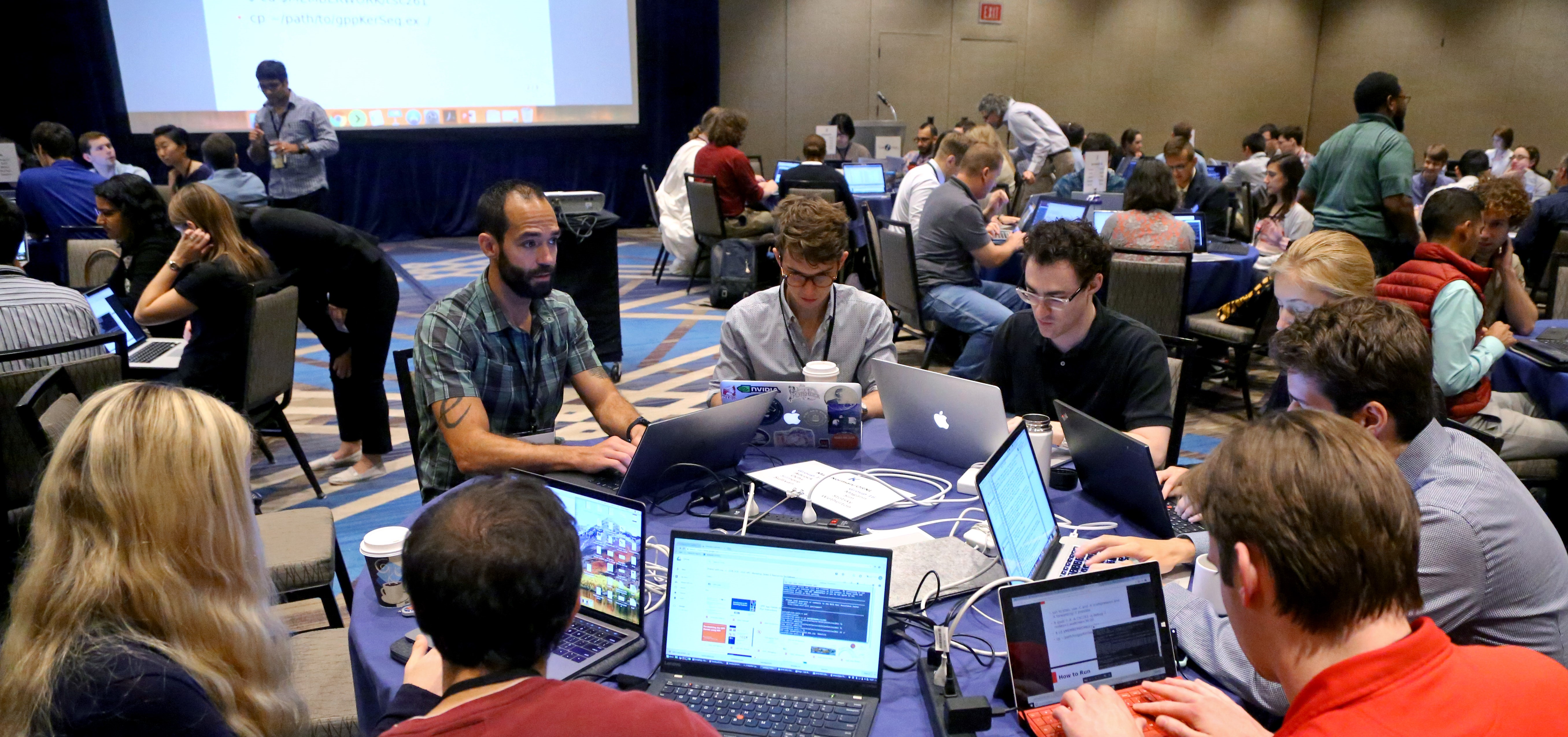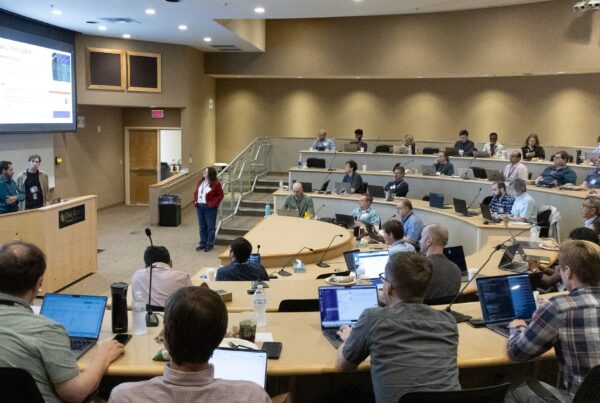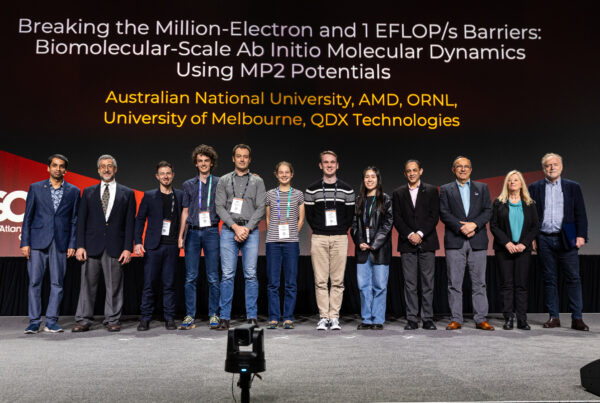The Oak Ridge Leadership Computing Facility (OLCF) recently provided introductory training in high-performance computing (HPC) and access to the facility’s Titan supercomputer to some of the nation’s top doctoral students in computational science.
As a US Department of Energy (DOE) Office of Science User Facility, the OLCF and supercomputing centers at other labs work closely with DOE’s Computational Science Graduate Fellowship (CSGF) program.
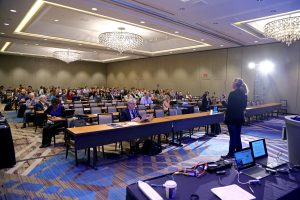
Judith Hill, OLCF scientific computing group leader, gives a presentation during the CSGF Program Review. Image courtesy of DOE CSGF/Krell Institute
The annual DOE CSGF Program Review—held this year July 15–19 in Arlington, Virginia—brings together fellows from across the country to share research goals and accomplishments. As part of the Program Review, fellows also participate in an annual CSGF HPC Workshop to improve their supercomputing knowledge.
“The CSGF Program Review gives the fellows a chance to network with their peers, laboratory scientists, and DOE program managers. Though their research disciplines are quite diverse, they can share their common experiences with different algorithms and methods,” said Judith Hill, OLCF scientific computing group leader, CSGF alumnus, and an organizer of the 2018 CSGF HPC Workshop.
This year’s HPC Workshop was a 2-day, hands-on opportunity for fellows to learn HPC programming basics and run a program on a DOE supercomputer. The HPC Workshop has evolved over the years from a lecture-based program to a hands-on experience. This was the first time that all fellows, in their first through fourth years of the fellowship, were invited to participate in this mini hackathon.
“The workshop size for the hackathon portion increased from about 30 fellows last year to about 100 this year,” Hill said.
After workshop presentations on HPC programming for scientific computing, fellows were provided a piece of code to program for GPU processors, such as those used in hybrid supercomputers like the 27-petaflop Titan. The OLCF provided the fellows access to Titan during the workshop and is still providing access for fellows who want to continue to work on their training program.
The OLCF and supercomputing centers at Lawrence Livermore and Lawrence Berkeley National Laboratories led the workshop with support from three other national labs with major supercomputing centers—Argonne, Los Alamos, and Sandia National Laboratories. The labs provided speakers, small-group mentors, and training resources.
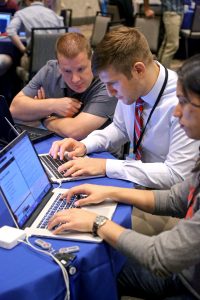
OLCF computational scientist Mark Berrill (left) mentors a group of CSGF fellows. Image courtesy of DOE CSGF/Krell Institute
“It was a big effort for the OLCF this year to set up Titan access for 100 participants, instruct participants with different levels of knowledge about HPC, and provide small-group mentorship during the workshop,” Hill said.
OLCF HPC engineer Thomas Papatheodore and two OLCF computational scientists and CSGF alumni, Mark Berrill and Matt Norman, mentored groups of four during the workshop and presented on topics from general HPC concepts to overviews of GPU programming aimed at optimizing code performance.
“We tried to provide fellows with a wide range of exposure on programming topics, such as OpenMP, MPI, and GPU programming models OpenACC and CUDA,” Papatheodore said.
Hill estimates that as many as 80 percent of the fellows will use some kind of HPC during their fellowships and careers and as many as 30 percent may use DOE supercomputers. From diverse academic backgrounds in computing and the sciences, many computational science graduate students have programming experience, yet few at the doctoral level have hands-on experience with unique resources like Titan.
“You have people who are running on a supercomputer for the first time, and they’re excited: ‘Whoa, I just ran on Titan and got this big speedup,’” Papatheodore said. “It is great to work with them now because these are the future users of supercomputers at government labs and universities. With this workshop, we’re helping prepare them for that.”
ORNL is managed by UT-Battelle for the Department of Energy’s Office of Science, the single largest supporter of basic research in the physical sciences in the United States. DOE’s Office of Science is working to address some of the most pressing challenges of our time. For more information, please visit https://science.energy.gov/.


